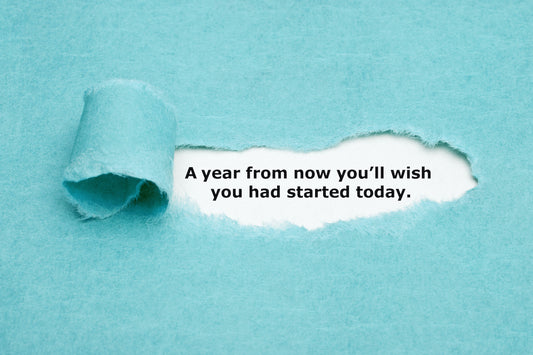procrastination
noun - the action of delaying or postponing something.
It’s interesting … pre-COVID-19, the most common excuses for avoiding/postponing the decision to create positive health changes and make a start with the 28-Day program were around work commitments, travel plans, social events, work functions, school holidays and lack of time. Since COVID-19 hit, all of these ‘obstacles’ have been eradicated … however, there’s now an entirely new list of reasons, such as having the kids at home, feeling stressed about work/health, financial (although sales of cars, furniture and many other luxury items has gone through the roof!), etc…
At the end of the day, it all boils down to priorities. My philosophy: where there’s a will, there’s a way!
If we spend our time complaining about how much we have to do – and sometimes even filling our days with distractions to justify just how busy we are (aka procrastination) we have no present time to get things done. What a perfect excuse!
Coping responses
Negative coping responses of procrastination tend to be avoidant or emotional rather than task-oriented or focused on problem-solving. This option provides immediate pleasure and is consequently very attractive to impulsive procrastinators.
Coping responses of procrastinators include the following:
- Avoidance: Avoiding the location or situation where the task takes place (e.g. a graduate student avoiding driving into the university).
- Denial and trivialisation: Pretending that it’s not actually procrastinating, but rather a task which is more important than the avoided one … such as spending extra time at the office and having ‘no time’ left for exercise or healthy food prep.
- Distraction: Engaging in other behaviours to prevent awareness of the task (e.g. trawling through social media).
- Descending counter factuality: Comparing consequences of your procrastination with others' worse situations (e.g. "Yes, I procrastinated and still lost a kilo. At least I didn’t gain weight like others did.")
- Blaming: Delusional attributions to external factors, such as rationalising that the procrastination is due to external forces beyond one's control (e.g. "I'm not procrastinating, but this program is really difficult to follow.")
- Mocking: Using humour to justify procrastination, commonly criticising others who are striving to achieve their goals.(e.g. "How boring they are to be so healthy ... you've gotta live!" (agreed - but preferably not in a sick, unhealthy body!)
Excessive procrastination can become a problem and impede normal functioning. When this happens, procrastination has been found to result in health problems, caused by stress and anxiety. These feelings may promote further procrastination and for some individuals procrastination becomes almost chronic.
How can you reduce procrastination?
- Acknowledge an awareness of habits that lead to procrastinating.
- Seek help for self-defeating problems such as anxiety, poor time management, indecisiveness, and perfectionism.
- Fair evaluation of priorities.
- Create a structure to help you to organise daily activities (see blog on ‘internal structure)
- Incentivise yourself with enjoyable activities and constructive hobbies.
- Tackle issues in small blocks of time, instead of attempting whole problems at once.
Practising better time management and prioritising the things in your life which are ‘important’ over those considered ‘urgent’ is a good place to start.
Procrastination is not a lifelong trait. Those likely to worry can learn to let go, those who procrastinate can find different methods and strategies to help focus and avoid impulses.
START TODAY!!
Quit smoking NOW ...
make the commitment to start your 28-day program THIS MOMENT….
do one push up NOW.
Decide not to be tired until the MOMENT BEFORE YOU GET INTO BED
Eliminate the words hope, wish and maybe and replace with “I am going to do the following things to ensure I feel better.”
Lying to yourself keeps you from having to admit you’re not being proactive.
The bottom line is, if it’s important enough to be on your list of activities, roll up your sleeves and get started - today!
Create your FREE personalised Fat Loss Projection Planner - available on our home page - and take your first step towards your goals!
























